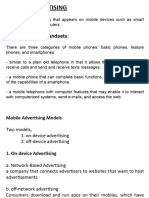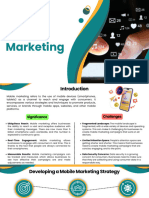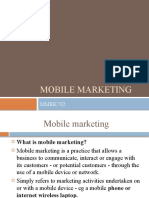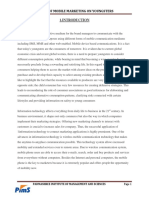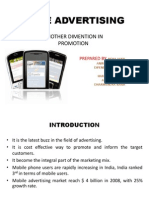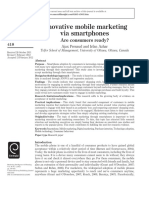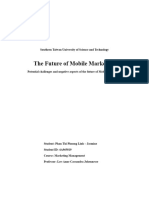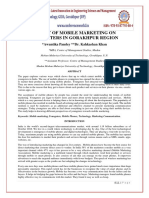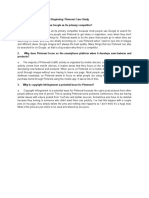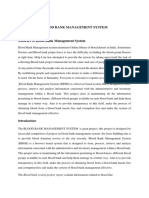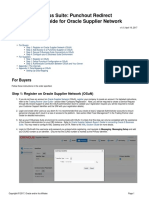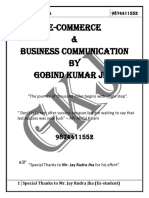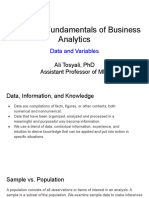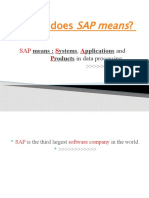0% found this document useful (0 votes)
55 views22 pagesMobile Marketing Insights
Mobile marketing refers to promoting products and services through mobile devices. It uses location services and data to tailor campaigns. With increasing mobile usage, it has become important. Mobile marketing allows widespread reach, precise targeting, and interactivity through apps and social media. It is often cheaper than traditional marketing. The future of mobile marketing involves greater personalization using AI, more video and augmented reality, and voice search optimization. Both mobile and traditional marketing have roles to play in an effective strategy.
Uploaded by
Soukaina LabiadCopyright
© © All Rights Reserved
We take content rights seriously. If you suspect this is your content, claim it here.
Available Formats
Download as PDF, TXT or read online on Scribd
0% found this document useful (0 votes)
55 views22 pagesMobile Marketing Insights
Mobile marketing refers to promoting products and services through mobile devices. It uses location services and data to tailor campaigns. With increasing mobile usage, it has become important. Mobile marketing allows widespread reach, precise targeting, and interactivity through apps and social media. It is often cheaper than traditional marketing. The future of mobile marketing involves greater personalization using AI, more video and augmented reality, and voice search optimization. Both mobile and traditional marketing have roles to play in an effective strategy.
Uploaded by
Soukaina LabiadCopyright
© © All Rights Reserved
We take content rights seriously. If you suspect this is your content, claim it here.
Available Formats
Download as PDF, TXT or read online on Scribd
/ 22

















